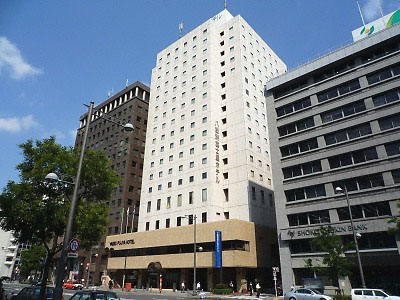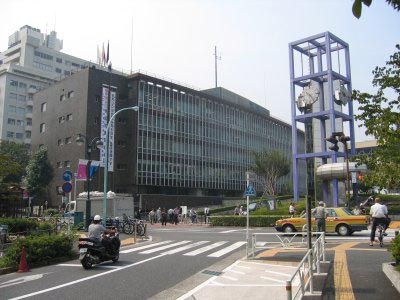Yaesu Fujiya Hotel to be redeveloped
 The Yaesu Fujiya Hotel by Tokyo Station will close at the end of March 2014 as the Kokusai Kogyo Group plan to sell the building and land to Sumitomo Realty & Development in April.
The Yaesu Fujiya Hotel by Tokyo Station will close at the end of March 2014 as the Kokusai Kogyo Group plan to sell the building and land to Sumitomo Realty & Development in April.
Sumitomo are expected to demolish the hotel and redevelop the site into an office building.
Kobe's Jonas Residence to be torn down after sale falls through
 The final bid to save the former Jonas Residence in Shioya, Kobe, from demolition has failed after the possible buyer backed out of discussions.
The final bid to save the former Jonas Residence in Shioya, Kobe, from demolition has failed after the possible buyer backed out of discussions.
In late September a renewable energy-related company began negotiations with the seller - developer Anabuki Kosan - to purchase the historic house and land. Unfortunately the two parties could not come to an agreement on the sale price and the buyer walked away from the deal on October 10.Read more
Old Andersen bakery in Hiroshima to be demolished
 The 88-year old Andersen bakery in Hiroshima is going to be demolished and rebuilt by Andersen Group as repairs and upgrades to the existing building prove too costly.
The 88-year old Andersen bakery in Hiroshima is going to be demolished and rebuilt by Andersen Group as repairs and upgrades to the existing building prove too costly.
The renaissance style building was designed by architect Uheji Nagano and completed in 1925. It was originally the Hiroshima branch of the Teikoku Bank (which later merged to become part of the Sumitomo Mitsui Banking Corporation). Mr. Nagano designed a number of buildings for the Bank of Japan, including their head office which still stands in Nihonbashi, Tokyo.Read more
Shibuya City Office redevelopment confirmed
 On September 10, an official decision was made to redevelop the Shibuya City Office and adjoining Shibuya Public Hall (C.C. Lemon Hall). The two buildings were completed in 1964, with the hall hosting the weight-lifting events at the 1964 Summer Olympics.
On September 10, an official decision was made to redevelop the Shibuya City Office and adjoining Shibuya Public Hall (C.C. Lemon Hall). The two buildings were completed in 1964, with the hall hosting the weight-lifting events at the 1964 Summer Olympics.
Demolition of the City Office will begin in 2015 and the new building should be completed by 2018. The building will be similar in scale to the existing ones. Part of the 12,500 sqm block will be converted to leasehold and may become the site of a future residential building.Read more
Apartment voting ratios under review
The government may soon introduce new measures to make it easier for old, ageing apartment buildings to be redeveloped. Currently, 100% of apartment owners must agree before their building can be demolished and the land sold, but this ratio may be reduced to 80%.
It is hoped that this will encourage the development of newer and more earthquake-resistant buildings which will improve the safety of neighbourhoods. It may also help to revitalise the real estate market.Read more
Last chance to save the Jonas Residence

Demolition of the historic Jonas Residence has been pushed back to October as the current owner is prepared to sell the house and land for 360 million Yen (approximately 3.6 million USD) if a buyer can be found.
Developer Anabuki Kosan purchased the waterfront property earlier this year and plan to tear it down and replace it with a 10-storey apartment building.Read more
Matsuzakaya Ginza Department Store to close after 89 years
 The Matsuzakaya Ginza Department Store will close its doors on June 30 as the site it occupies is going to be redeveloped.
The Matsuzakaya Ginza Department Store will close its doors on June 30 as the site it occupies is going to be redeveloped.
The department store opened in Ginza the year following the Great Kanto earthquake of 1923, and is the oldest department store in the famed shopping district. At the height of Japan's bubble in 1990, annual sales reached 54 billion Yen. However, revenues began to drop due to growing competition from other department stores, including Mitsukoshi, Matsuya and Printemps Ginza, and an influx of fast fashion retailers. By 2013, sales were down to 10.2 billion Yen. Read more
